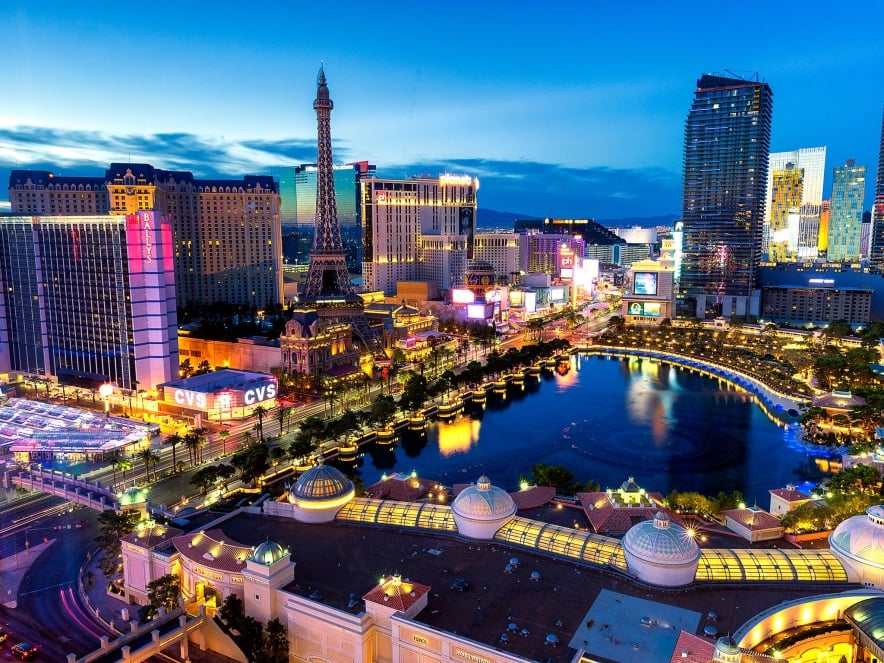Bag Checks At Hotels Unlikely To Become New Normal, Expert Says
In the aftermath of the Las Vegas shooting that killed 59 people and wounded more than 500 others, many are wondering if hotels will change their security policies and procedures.
One area of concern is if hotels will begin implementing bag checks because gunman Stephen Paddock was able to smuggle 23 firearms, along with other equipment, into his suite at Mandalay Bay to carry out Sunday's massacre.
The Wynn resort in Las Vegas—located on the opposite end of the Vegas Strip from the Mandalay Bay resort—introduced security guards on Monday afternoon to screen visitors with metal-detector wands. It also implemented a bag check, which created a 10-minute wait to get inside the facility.
This is unlikely to become the new normal for hotel security in the near future, however, says Russell Kolins, CEO of the Kolins Security Group and chair of the ASIS International Hospitality, Entertainment, and Tourism Security council.
Hotels are in the business of selling privacy—they're offering hospitality and selling privacy," Kolins explains, adding that hotels would likely start to lose business if they began checking bags—especially in locations like Las Vegas.
"In Vegas especially, what happens in Vegas stays in Vegas," Kolins says. "People bring items they don't want other people to see."
At airports, travelers are subject to bag searches—as well as body scans—because they are a different kind of target than a hotel. Travelers also have no expectation of privacy while on a plane, except for in the bathroom, unlike in a hotel where travelers expect privacy within their room, Kolins says.
One policy that might need to be revisited following the shooting, however, is how hotels handle checking rooms that have a "Do Not Disturb" sign on the door.
Paddock checked into the Mandalay Bay on Thursday and kept a "Do Not Disturb" sign on his hotel door throughout his stay. This meant hotel cleaning staff did not enter his room,according to a hotel worker who spoke to The New York Times,? because housekeeping is only allowed to enter a room with such a sign on it if a security guard is present.
Requiring a security guard be present to enter rooms with privacy signs is the right move, Kolins says, but hotels should consider changing their policies to require room checks every other day.
"That's an arbitrary period of time, but I think a policy should be instilled to at least check on the rooms," Kolins says, adding that hotels would have to make patrons aware of the policy. But such a policy could, potentially, prevent an individual from using a hotel room for an extended period of time to plot a criminal act.
Kolins leads a team of court-certified security experts at his firm. He says he thinks it's unlikely that Mandalay Bay will be sued for negligence for the shooting because to sue for negligence, plaintiffs must be able to show foreseeability."
"This is unprecedented—nothing like this has ever happened," Kolins explains. "If something happens the first time, it's not foreseeable."
Now that such an attack has happened, though, if a similar attack happens plaintiffs could potentially bring a lawsuit saying it was foreseeable. In response, Kolins says he expects the hotel security industry to begin having seminars and tabletop meetings to determine how they would handle a similar case.
"I think what this has done is show that the slogan 'expect the unexpected' is again proven to be true," Kolins says. "It wasn't foreseeable because it was unprecedented."
Many are wondering if hotels will change their security policies and procedures after the Las Vegas
